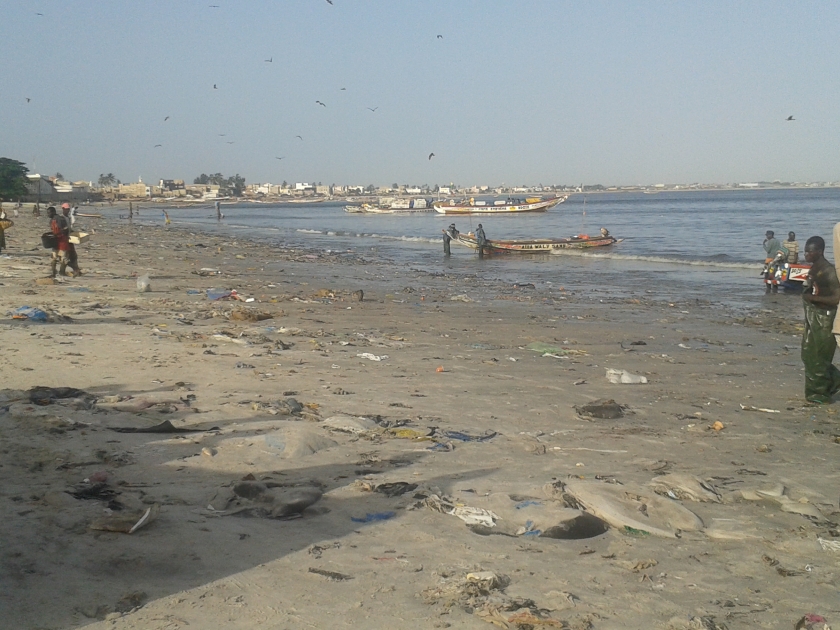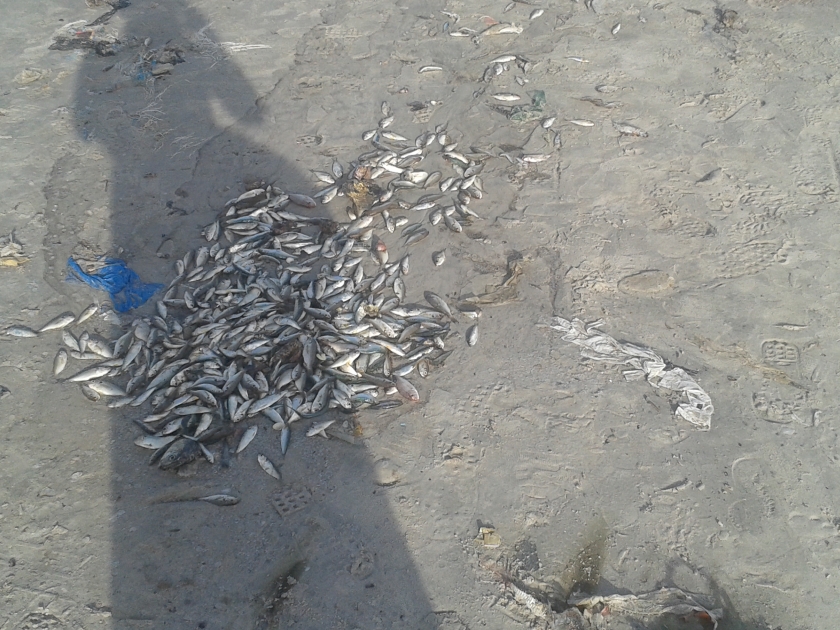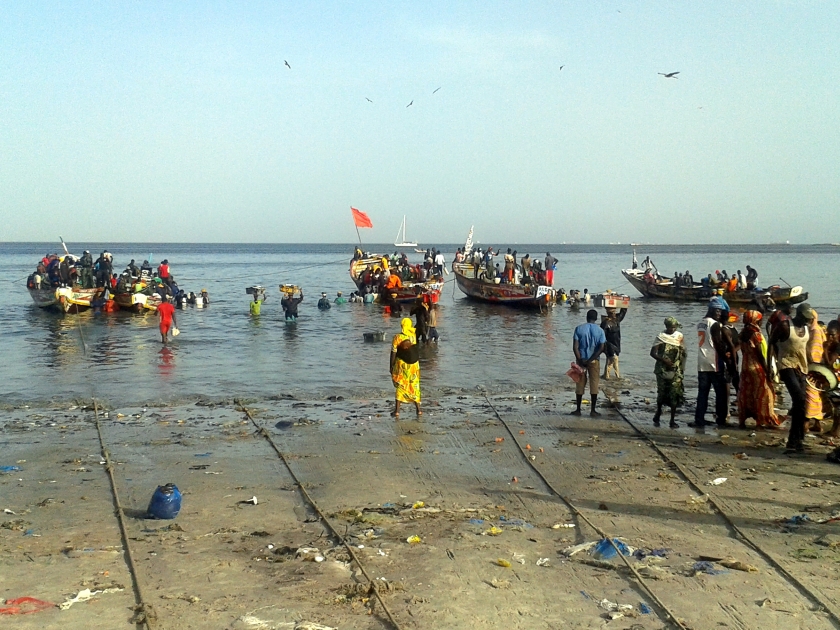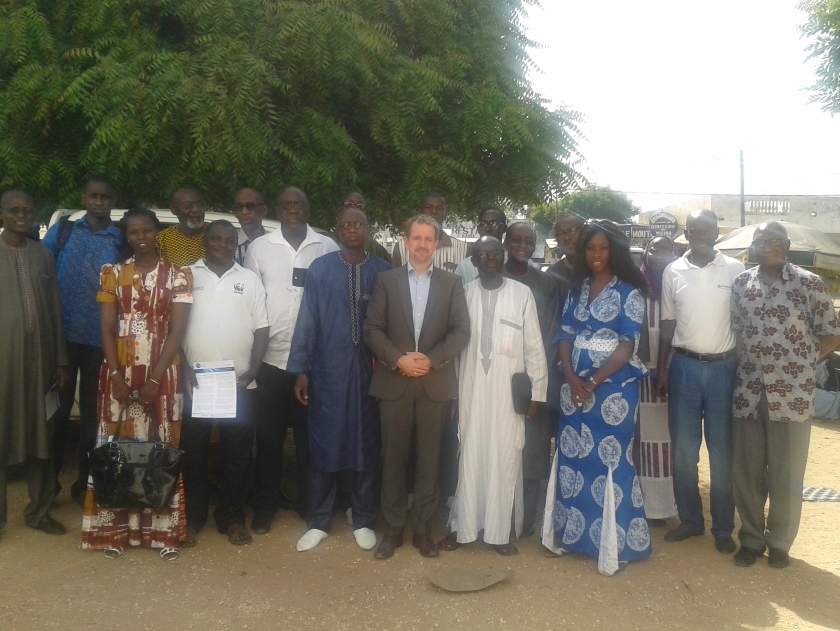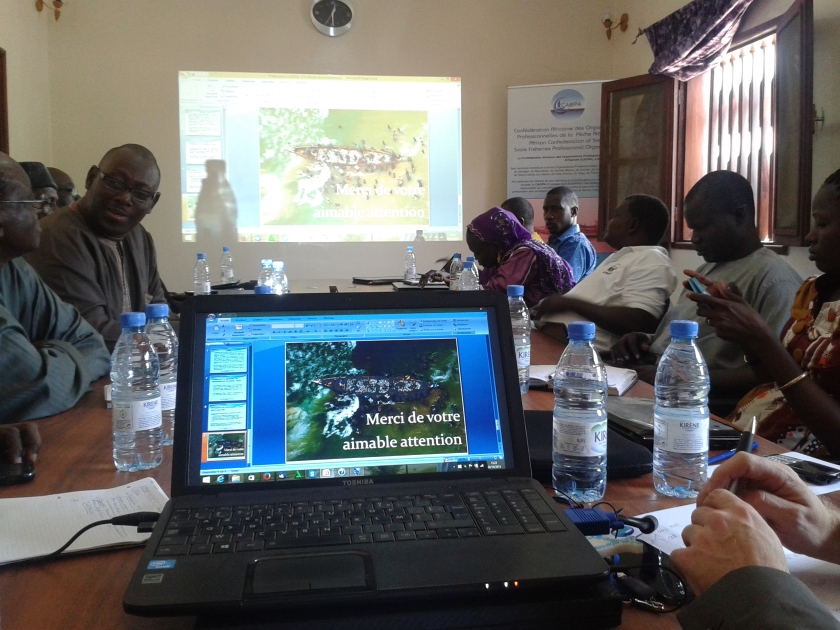Senegal considers FiTI implementation, senior official says
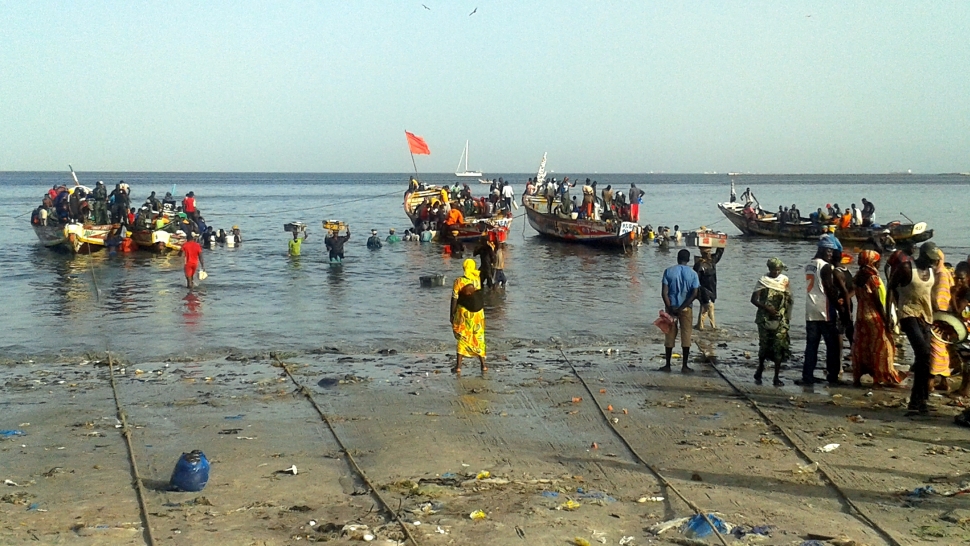
DAKAR, 28 October 2015. Dusk: the colorful pirogues have been at sea since dawn, and now they are coming back one by one to the shore. At the fish market on the beach, women and men are waiting for the fishermen’s daily catch.
It is a scene that plays out daily along the Senegalese coast. After all, 15% of the population depend on fisheries for their livelihoods. Many also depend on fish for their food security, with fish accounting for roughly 75% of the population’s animal protein needs.
Despite the importance of fish to daily life and to survival in Senegal, this pillar of the economy is under pressure. Over the past two decades, the country has had growing problems with illegal fishing, bad governance and limited participation of key stakeholders, due to a lack of transparency in fisheries management.
“Transparency is a real issue in Senegal”, says Gaoussou Gueye, Secretary General of the African Confederation of Artisanal Fisheries Professional Organizations, at a workshop to introduce the FiTI to Senegalese artisanal fisheries and civil society organizations.
Participants agreed with Gueye. A lot of information is available, but it only goes to the elites, they said. The lack of both transparency and participation in the country’s fisheries management has become a growing source of frustration.
“Access to information is no luxury, it is our right,” one participant said.
As a multi-stakeholder initiative, FiTI supports the participation of Senegalese fishermen who are demanding more transparent fisheries management.
And, since 2010, as pressure has grown for better fisheries management, the Senegalese Government has also made better fisheries governance a priority.
These efforts to improve governance include engagement in the World Bank-funded West Africa Regional Fisheries Program (WARFP). The program seeks to build governance capacity and enhance the sustainable management of marine resources. This emphasis on transparency and participation means that it has strong synergies with the FiTI.
Building on this momentum, a FiTI Secretariat team traveled to Senegal in late October to present the FiTI to the Senegalese Government, the WARFP, artisanal fishermen, and civil society organizations.
Mamadou Goudiaby, Senegal’s Director for Maritime Fisheries, congratulated the initiative on its work, and said that Senegal has already laid the foundations for FiTI implementation, particularly with regards to participation. Government and business already consult with each other on some fisheries management issues, for example. Goudiaby requested concrete suggestions on how Senegal could become an early implementer of the FiTI.
At a separate meeting with the Sub-regional Fisheries Commission of West Africa, which also includes Mauritania, regional officials highlighted the potential benefits of FiTI for the region. Noting the potential synergies with the WARFP, Permanent Secretary of the Commission, Ms. Marième Talla, suggested concrete steps for collaboration between the Commission, which is implementing the WARFP, and the FiTI.
Ms. Talla and Mr. Sven Biermann, Program Director of the FiTI, agreed to establish a formal partnership within the coming weeks.
“This marks an important step for the FiTI, building on the WARFP’s strong technical expertise and regional outreach, while demonstrating how the FiTI supports existing initiatives”, Mr. Biermann said.

